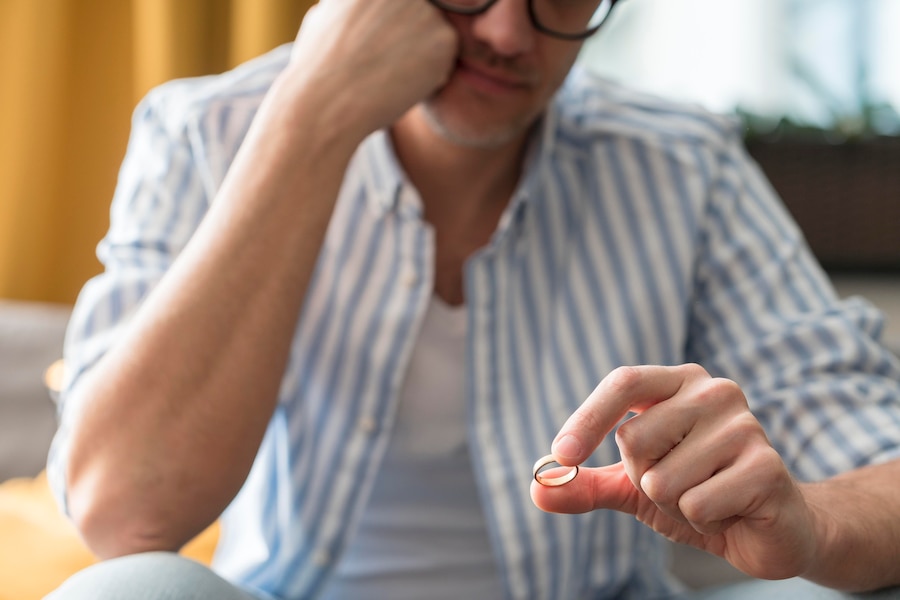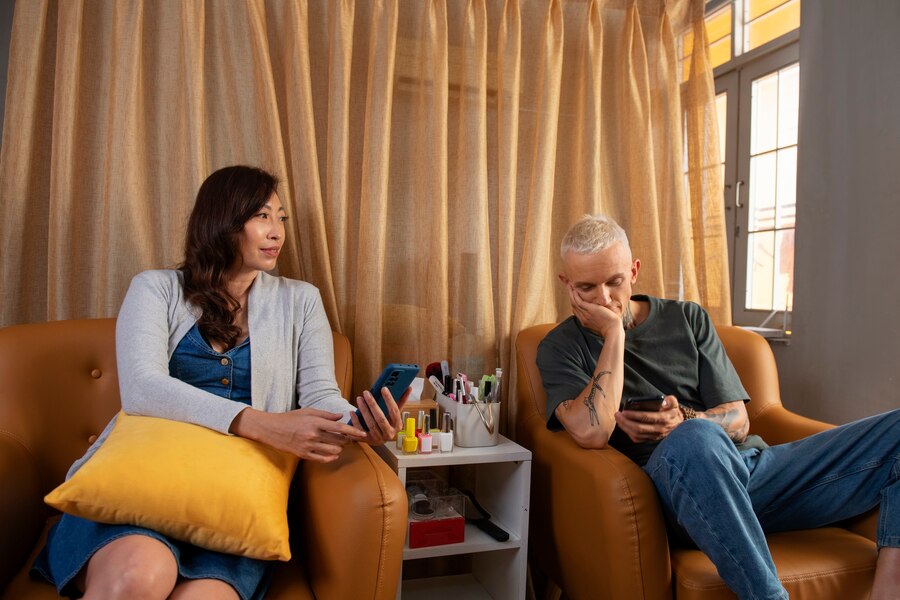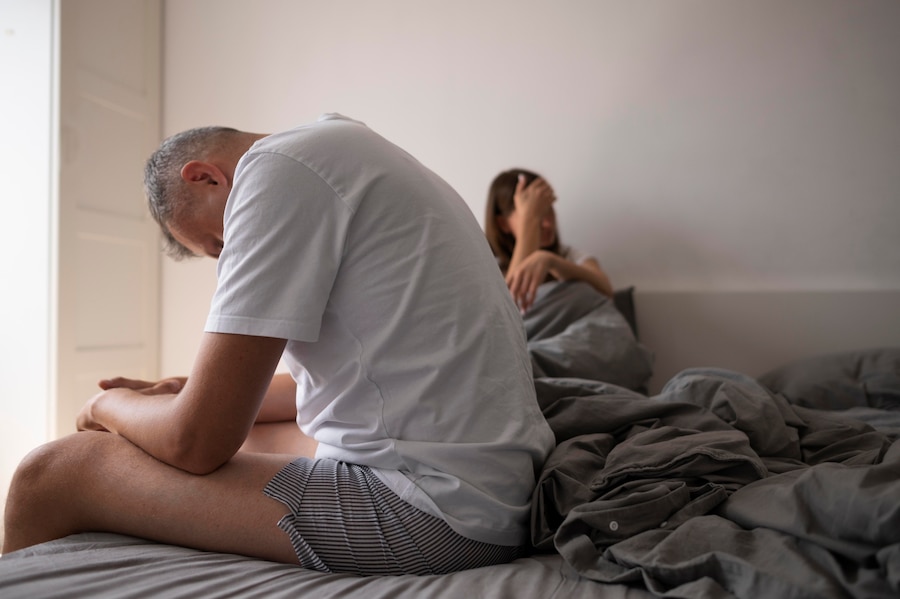In the intricate dance of life, relationships often serve as the rhythm that keeps us moving forward, providing companionship and love. However, even the most harmonious of partnerships can encounter discord, leading to periods of uncertainty and distress. For many couples, these challenges can become overwhelming, pushing them to the brink of separation. This was our story—a tale of love nearly lost, only to be found again through the transformative experience of couples rehab.
In this article, we share our journey from the edge of collapse to a renewed sense of unity and purpose. Our relationship faced significant hurdles, from communication breakdowns to emotional disconnects that seemed insurmountable. Yet, it was in our darkest hour that we discovered a lifeline: couples rehab. This decision to seek help not only saved our relationship but also taught us valuable lessons about resilience, understanding, and the power of commitment.
As we take you through our experience, we’ll explore the pivotal moments that led us to seek rehabilitation, the intensive process of healing and rebuilding, and the ongoing efforts required to maintain a healthy, thriving partnership. Whether you’re facing your own relationship struggles or simply seeking insight into the power of dedicated support, our story aims to offer hope and practical guidance.
The Breaking Point
Every relationship has its trials, but there comes a moment when the accumulated weight of unresolved issues, unmet needs, and emotional strain becomes too much to bear. For us, that breaking point was both devastating and transformative. The journey to the edge of our relationship’s survival was marked by a series of distressing signs, profound impacts on our connection, and a pivotal decision to seek professional help.
Signs of Trouble
The signs of trouble in our relationship were subtle at first. We began to notice a gradual erosion of intimacy, punctuated by frequent misunderstandings and growing emotional distance. Conversations that once flowed effortlessly became stilted and strained. Small disagreements escalated into full-blown arguments that left both of us feeling unheard and misunderstood. The laughter that once filled our home was replaced by an uncomfortable silence, and the warmth of our companionship grew cold.
We also started to exhibit behaviors that were counterproductive to a healthy relationship. Avoidance became our common tactic—evading meaningful discussions and burying our heads in work or hobbies seemed easier than confronting the issues head-on. Resentment began to fester, fueled by unmet expectations and unvoiced grievances. The physical gestures of love, such as holding hands or a simple hug, became rare, highlighting the growing chasm between us.
Impact on Relationship
The impact of these troubles on our relationship was profound. We found ourselves drifting apart, each day feeling more like cohabitants than partners in love. The sense of partnership and unity that once defined our relationship was replaced by a feeling of isolation and loneliness. Our emotional disconnect began to affect other aspects of our lives, from our social interactions to our professional responsibilities. Friends and family started to notice the tension, offering well-meaning but ultimately ineffective advice.
The strain took a toll on our mental and emotional well-being. Anxiety and depression crept in, making it difficult to focus on daily tasks. Sleepless nights became routine as we lay awake, replaying arguments and pondering the future of our relationship. The stress even began to manifest physically, with frequent headaches and a persistent feeling of fatigue.
Decision to Seek Help
Reaching the breaking point forced us to confront the reality that our relationship was in jeopardy. The fear of losing each other, coupled with the realization that we couldn’t mend the fractures on our own, led us to consider professional intervention. It was a difficult decision, fraught with vulnerability and uncertainty, but one that ultimately offered a glimmer of hope.
We researched various options and finally settled on couples rehab, a specialized program designed to address the unique challenges faced by couples in crisis. The decision to seek help was our first step towards healing—a mutual acknowledgment that we needed guidance to navigate the turbulent waters we found ourselves in. It was an act of courage and commitment, a testament to the love that still lingered beneath the layers of hurt and misunderstanding.
The Rehab Experience
When we first made the decision to seek help, we were overwhelmed with emotions ranging from fear and apprehension to a glimmer of hope. Couples rehab was uncharted territory for us, but it turned out to be a transformative journey that reshaped our relationship from the ground up.
Initial Assessment
Our rehab experience began with an initial assessment, a comprehensive evaluation designed to understand the core issues plaguing our relationship. We met with a team of professionals, including therapists and counselors, who conducted individual and joint interviews. These sessions delved into our personal histories, our relationship dynamics, and the specific challenges we faced. This thorough assessment allowed the rehab team to tailor a custom program that addressed our unique needs, laying the groundwork for effective therapy.
Therapeutic Approaches
Once the initial assessment was complete, we embarked on a structured program that incorporated various therapeutic approaches. Cognitive Behavioral Therapy (CBT) played a crucial role in helping us identify and modify the destructive thought patterns and behaviors that had eroded our relationship. Through CBT, we learned to recognize triggers, manage our emotions, and develop healthier coping mechanisms.
Another cornerstone of our rehab experience was Emotionally Focused Therapy (EFT). This approach helped us explore the emotional underpinnings of our conflicts and fostered a deeper emotional bond. EFT sessions were intense and often brought unresolved issues to the surface, but they were instrumental in helping us reconnect on an emotional level.
Group therapy sessions provided an additional layer of support and insight. Sharing our experiences with other couples facing similar struggles helped us realize that we were not alone. It was incredibly validating to hear others articulate feelings and challenges that mirrored our own, and the collective wisdom of the group offered new perspectives and strategies for growth.
Building Communication Skills
Effective communication is the bedrock of any healthy relationship, and our rehab program placed significant emphasis on enhancing our communication skills. We participated in workshops and exercises designed to improve our ability to listen actively, express ourselves clearly, and resolve conflicts constructively.
One particularly impactful exercise was the “reflective listening” technique, where we practiced listening to each other without interrupting, then reflecting back what we heard to ensure understanding. This simple yet powerful tool helped us break the cycle of miscommunication and fostered a sense of empathy and validation.
Role-playing scenarios allowed us to rehearse difficult conversations in a controlled environment, giving us the confidence to tackle sensitive topics without escalating into arguments. These exercises also helped us develop a shared vocabulary for discussing our needs and feelings, making it easier to navigate complex emotional terrain.
By the end of our rehab experience, we had acquired a toolkit of communication strategies that not only improved our ability to interact with each other but also deepened our emotional connection. The skills we learned in rehab became the foundation upon which we began to rebuild our relationship, one conversation at a time.
Couples rehab was not an easy journey, but it was a necessary one. The initial assessment, therapeutic approaches, and communication skills training we received were pivotal in setting us on the path to healing. Through this transformative experience, we began to rediscover the love and partnership that had been buried under years of unresolved conflict.

Rebuilding Trust
Rebuilding trust after a period of turmoil is one of the most challenging yet crucial steps in a couple’s journey through rehab. Trust, once broken, requires consistent effort, empathy, and patience to mend. In this section, we will explore the multifaceted process of restoring trust, focusing on understanding each other’s needs, committing to change, and maintaining progress post-rehab.
Understanding Each Other’s Needs
The first step in rebuilding trust involves a deep, empathetic understanding of each other’s needs. During rehab, couples often engage in sessions where they learn to communicate openly and honestly about their desires, fears, and expectations. These sessions are designed to break down barriers and foster a sense of empathy and mutual respect.
For instance, one partner may need reassurance and validation, while the other might require space and time to process emotions. Recognizing and respecting these needs can lay a strong foundation for rebuilding trust. Therapists often use various tools, such as role-playing and reflective listening exercises, to help couples articulate their needs clearly and understand their partner’s perspective.
Commitment to Change
Understanding each other’s needs is just the beginning; the next crucial step is a mutual commitment to change. This commitment involves both partners actively working towards becoming the best versions of themselves and supporting each other through this transformation.
Couples rehab programs emphasize the importance of setting realistic, achievable goals. These goals often include specific actions that each partner commits to, such as attending regular therapy sessions, practicing active listening, and making time for each other. The act of setting and achieving these goals not only helps in personal growth but also reinforces the bond of trust between partners.
Moreover, accountability plays a significant role in this phase. Partners are encouraged to hold each other accountable in a constructive manner, ensuring that both are consistently working towards their shared goals. This mutual accountability helps in creating a sense of reliability and dependability, which are key components of trust.
Maintaining Progress Post-Rehab
The journey of rebuilding trust doesn’t end when the rehab program does; in fact, it is an ongoing process that requires continuous effort. Maintaining progress post-rehab involves integrating the skills and practices learned during therapy into everyday life.
Couples are often provided with a post-rehab plan that includes regular check-ins, follow-up therapy sessions, and support groups. These resources are crucial in helping couples stay on track and address any potential setbacks promptly. Regular check-ins allow couples to discuss their progress, celebrate their successes, and address any emerging issues before they escalate.
Additionally, couples are encouraged to continue practicing the communication and problem-solving skills they acquired during rehab. This includes setting aside time for regular, uninterrupted conversations, actively listening to each other, and approaching conflicts with a solution-focused mindset.
Another vital aspect of maintaining progress is self-care. Both partners need to prioritize their physical, emotional, and mental well-being. Engaging in activities that promote relaxation and joy, such as hobbies, exercise, and spending quality time together, can strengthen the bond and help sustain the positive changes made during rehab.
Discover How Couples Rehab gives Second Chance
Navigating the tumultuous waters of a struggling relationship can often feel like an insurmountable challenge. The decision to enter couples rehab is not an easy one, but for many, it represents the turning point where hope and healing begin. Our journey through couples rehab was marked by pain, vulnerability, and an unwavering commitment to rediscovering the love that initially brought us together.
The process of confronting our issues head-on allowed us to break down the barriers that had been constructed over time. Through the initial assessment, we gained a clearer understanding of the individual and collective issues that were affecting our relationship. The various therapeutic approaches provided us with the tools to navigate our emotions and conflicts more constructively. Communication, a skill we had almost lost, became the cornerstone of our renewed connection.
Rebuilding trust was perhaps the most challenging aspect of our recovery. It required patience, empathy, and a genuine willingness to understand and meet each other’s needs. Our commitment to change was not just a promise to each other but a promise to ourselves, acknowledging that maintaining progress post-rehab would be a lifelong endeavor.
Today, we stand stronger and more united than ever. Couples rehab gave us a second chance, not just as partners but as individuals committed to personal growth and mutual respect. The experience taught us that while love is a powerful force, it requires effort, understanding, and resilience to thrive.
In closing, if you and your partner are grappling with relationship difficulties, know that seeking help is a courageous and worthwhile step. Couples rehab can offer the guidance and support needed to mend the fractures and build a healthier, more fulfilling relationship. We almost lost it all, but through dedication and professional help, we found our way back to each other, proving that it is never too late to start anew. Join us as we delve into the depths of our relationship’s trials and triumphs, and discover how couples rehab gave us a second chance at love and connection.

FAQs
1. What does “We Almost Lost It All” signify in the context of Couples Rehab?
- “We Almost Lost It All” reflects the pivotal moment many couples face when addiction threatens to destroy their relationship. Couples Rehab provides a lifeline, offering comprehensive treatment to help couples heal and rebuild their lives together.
2. How does Couples Rehab give couples a second chance at life?
- Couples Rehab gives couples a second chance at life by providing specialized treatment programs that address addiction within the context of their relationship. Through therapy, support, and education, couples learn to overcome challenges and forge a path to recovery together.
3. What role does Couples Rehab play in repairing strained relationships?
- Couples Rehab plays a crucial role in repairing strained relationships by offering counseling sessions, communication workshops, and experiential therapies designed to rebuild trust, foster understanding, and strengthen the bond between partners.
4. Can Couples Rehab help couples who have experienced multiple setbacks in their recovery journey?
- Yes, Couples Rehab is equipped to help couples who have experienced multiple setbacks in their recovery journey. With personalized treatment plans, ongoing support, and relapse prevention strategies, Couples Rehab provides couples with the tools they need to overcome obstacles and stay on track towards long-term sobriety.
5. How does Couples Rehab address underlying issues contributing to addiction within the relationship?
- Couples Rehab addresses underlying issues contributing to addiction within the relationship through individual and couples therapy sessions. By exploring past traumas, communication patterns, and relationship dynamics, couples gain insight into the root causes of their addiction and learn healthier ways to cope.
6. What sets Couples Rehab apart from traditional rehab programs?
- Couples Rehab stands apart from traditional rehab programs by offering specialized treatment that focuses on healing both partners simultaneously. By addressing addiction within the context of the relationship, Couples Rehab fosters deeper connection and mutual support in recovery.
7. How do couples benefit from attending rehab together?
- Couples benefit from attending rehab together by providing mutual encouragement, accountability, and understanding. By sharing the recovery journey, couples strengthen their bond and develop essential skills for navigating life’s challenges together.
8. Is Couples Rehab suitable for couples at different stages of their relationship?
- Yes, Couples Rehab is suitable for couples at different stages of their relationship, from newlyweds to long-term partners. Regardless of where they are in their journey, Couples Rehab offers tailored treatment plans to meet the unique needs of each couple.
9. What support does Couples Rehab offer for couples transitioning back to everyday life after treatment?
- Couples Rehab offers comprehensive aftercare support for couples transitioning back to everyday life after treatment. This may include ongoing therapy sessions, support group referrals, and access to community resources to help couples maintain their sobriety and strengthen their relationship.
10. How can couples get started with Couples Rehab and begin their journey to a second chance at life?
- Couples can get started with Couples Rehab by reaching out to the admissions team for a confidential assessment and consultation. The compassionate staff will guide couples through the admissions process and provide support every step of the way.





















